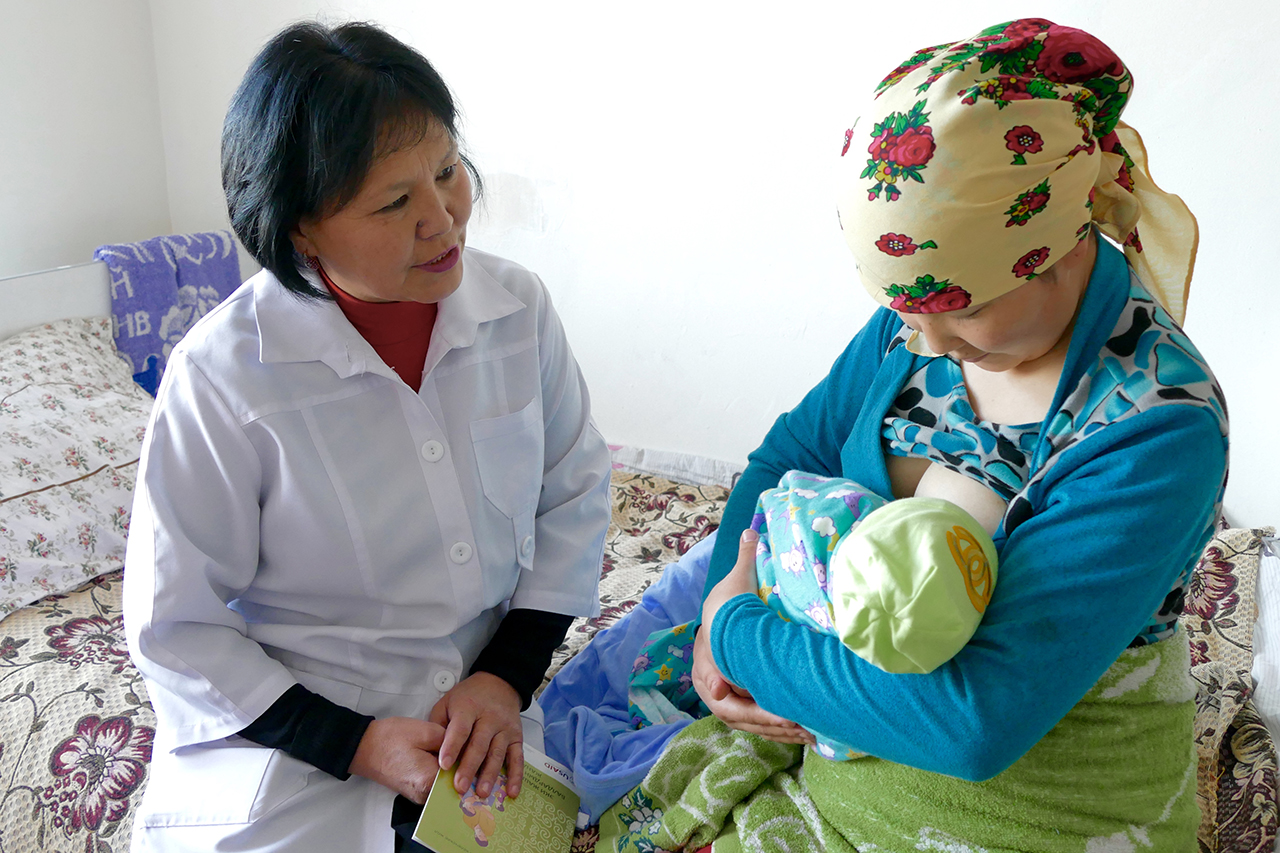
USAID Advancing Nutrition documented and shared country experiences in expanding the coverage and sustainability of the Baby Friendly Hospital Initiative (BFHI). BFHI systematizes the adoption of ten evidence-based steps (the Ten Steps) by health facilities to promote, protect, and support breastfeeding. The 2018 WHO/UNICEF BFHI implementation guidance also emphasized nine key government responsibilities to integrate the Ten Steps into national health systems as standards of care, implement them at scale, and sustain them over time—essential to helping mothers and families successfully breastfeed their babies. Several low- and middle- income countries have made progress in adopting some of the nine responsibilities, but their experiences and lessons learned are not well documented.
Lessons Learned from the Kyrgyz Republic and Malawi
USAID Advancing Nutrition conducted a two-country case study in the Kyrgyz Republic and Malawi to support efforts to document and share country experiences in implementing the following responsibilities: (Step 3) Ensure the competency of health professionals and managers in implementation of the Ten Steps; (Step 5) Develop and implement incentives for compliance and/or sanctions for non-compliance with the Ten Steps; and (Step 6) Provide technical assistance to facilities that are making changes to adopt the Ten Steps.
Three case study publications on findings from the Kyrgyz Republic, Malawi (pending publication), and across both countries document country experiences in institutionalizing BFHI, including lessons learned and barriers and challenges in policy and program support. They highlight the need to continue to share country processes, tools, and experiences of implementing the national responsibilities as countries seek to protect, promote, and support breastfeeding through BFHI.
We found that:
- The foundation for ensuring breastfeeding competency building and verification of health professionals and managers in Malawi and the Kyrgyz Republic is well established and opportunities exist for strengthening and scaling up.
- The main limitations to aligning with the new guidance are a lack of preservice BFHI‐ and breastfeeding‐specific curricula, experienced trainers, and sufficient time and funding to dedicate to practical skills development.
- Technical assistance is commonly provided for competency building and supportive supervision while awaiting funding for in-service training.
- Countries have taken resilient strides to mitigate impacts of the COVID-19 pandemic on breastfeeding support through facility‐level individual champions and adjustments to training such as going online. Opportunities exist for strengthening the competencies of service providers through strengthened pre-service training, comprehensive and consistent in‐service training, solutions for overworked service providers and clear and sufficiently-funded monitoring guidance.
- For countries considering incentives and sanctions, behavioral research to understand motivations for both providers and the health system, as well as adopting and monitoring hospital-related postpartum process indicators, is necessary to understand what options for incentives or sanctions may be most effective.
In addition to the three publications, USAID Advancing Nutrition created a series of short videos that provide background on incentives and sanctions for BFHI, and share country experiences and learning around using performance-based financing for institutionalizing the Ten Steps for Successful Breastfeeding. The videos feature experts from WHO, UNICEF, USAID Advancing Nutrition, and country examples from the Kyrgyz Republic, Vietnam, Brazil, and Rwanda.